What Planned Parenthood's exit from federal Title X funding means: 'Vulnerable people will suffer the most'
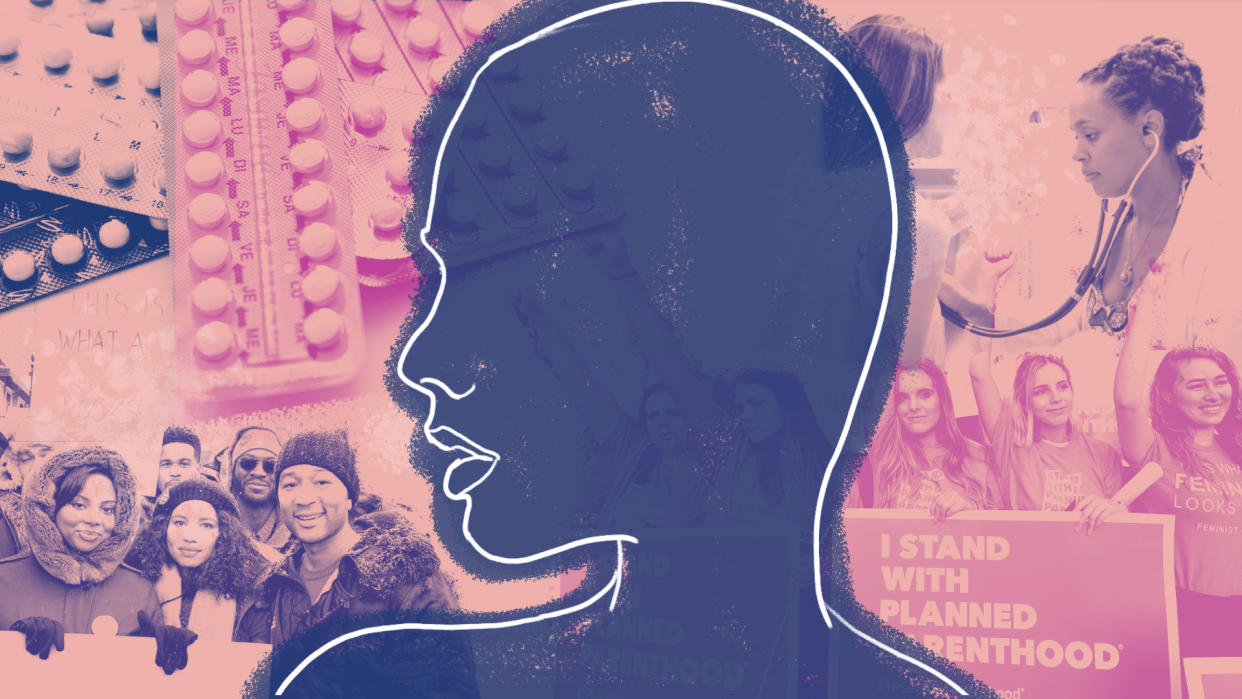
At 16 years old, Jessica Rogers says her period pain was “unbearable” — so excruciating, that sometimes it would force her to miss school. When her mother refused to acknowledge her pain, Rogers turned to Planned Parenthood.
“They gave me a pill form of birth control FOR FREE, no insurance, no parents...[my mom] would call them raging mad telling them to give her my info and they simply said they couldn't,” Rogers wrote on a Facebook post about a clinic in Utah. “Planned Parenthood saved me from years of pain that I struggled with for awhile.”
Rogers is speaking out in the wake of news that Planned Parenthood is withdrawing from Title X — a federal grant program that “provides affordable birth control and reproductive health care to people with low incomes, who couldn’t otherwise afford health care services on their own.”
Planned Parenthood — the largest Title X beneficiary in the nation — currently serves 40 percent of the 4 million individuals who depend on the program. The decision to withdraw from it was motivated by a new rule from the Trump administration requiring grantees to stop referring patients to abortion providers. The organization officially announced that it was pulling out of the program on August 19, the deadline for complying with the new “gag rule.”
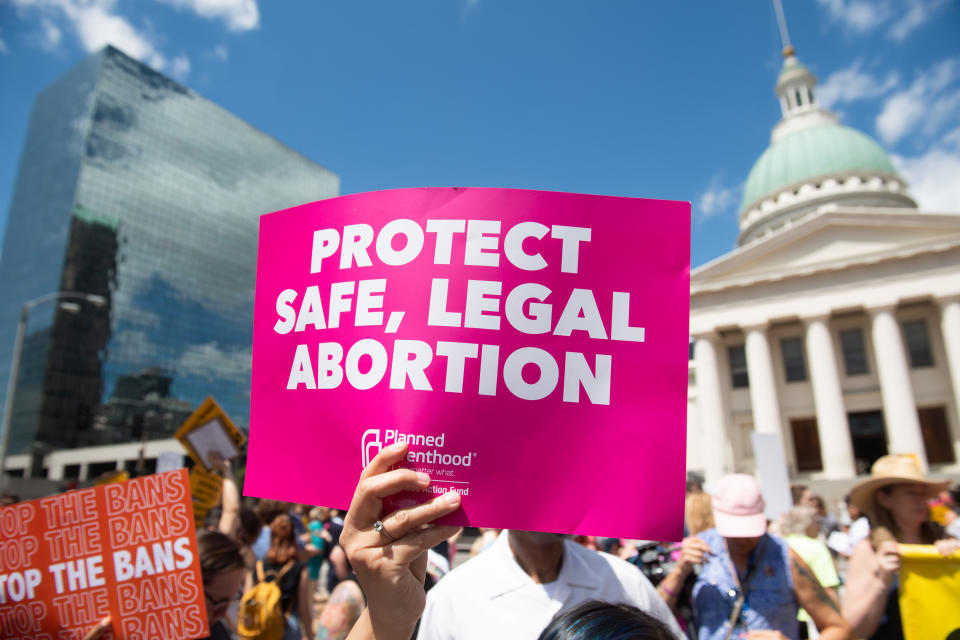
The decision will cost Planned Parenthood $60 million dollars in funding and put the 1.5 million Title X patients who use their clinics in danger of losing access to reproductive care. For residents of Utah, where Planned Parenthood has been the only Title X recipient for the last 35 years, there may be nowhere else to turn for affordable family planning and reproductive services.
“Vulnerable people will suffer the most, people living on the edge financially,” says Karrie Galloway, the president of Planned Parenthood Association of Utah and Planned Parenthood Action Council. She adds that these individuals are typically individuals who live in rural areas with provider shortages, people who are uninsured and young people.
Misty Dotson, a 33-year-old single mother from Salt Lake City says that without Title X funding from Planned Parenthood, she’ll likely be forced to go without reproductive health care entirely. “I think that fewer people are going to the doctor because they can't afford it, period. And if you can't afford going for these simple things, then reproductive care you're going to go without,” Dotson tells Yahoo Lifestyle. “I guess that's another thing we're going to have to give up.”
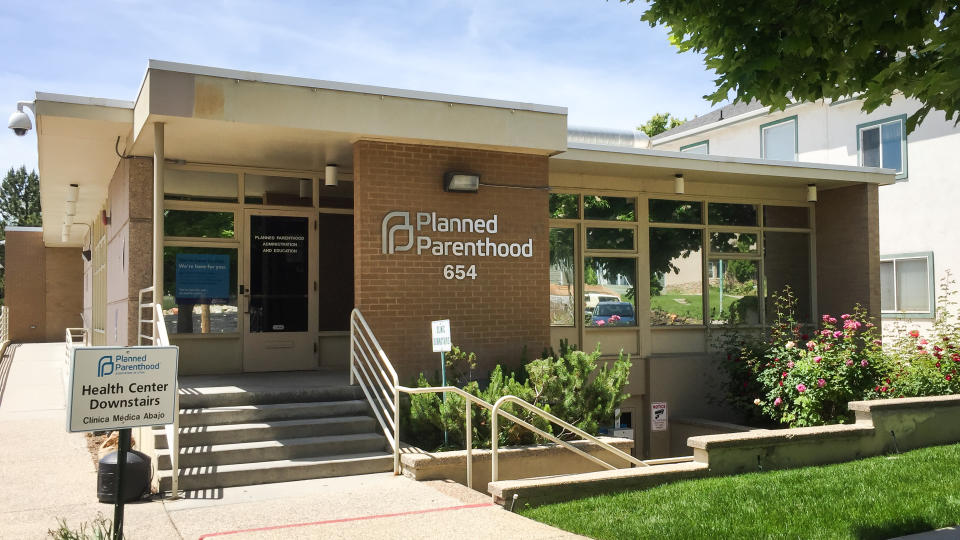
Title X granted money to Planned Parenthood and other clinics to subsidize the costs for qualifying patients so they could receive care including STD and HIV tests, birth control, pregnancy tests, cancer screenings, breast examinations, fertility awareness and anything related to “family planning services.” That is, everything but abortion services. The controversial Hyde Amendment already prevents Medicaid funds from being used for abortions except in cases of rape, incest or a serious illness or injury that could endanger a pregnant woman’s life.
Although it’s only been a couple of weeks since Planned Parenthood withdrew from the Title X program, its patients are already experiencing higher fees and longer waits at Planned Parenthood clinics across the nation. Medical professionals are concerned with the long term effects of Planned Parenthood being unable to provide affordable reproductive health care including an increase of sexually transmitted infections and unintended pregnancies, says Sarah Traxler, MD, the chief medical officer of Parenthood of Minnesota, North Dakota and South Dakota.
Dotson and her two sons have been uninsured or under-insured for the past five years. “After the birth of my second son, my hormones were kind of out of whack. My body was just like different,” Dotson tells Yahoo Lifestyle. “I just had to find a more affordable alternative and shortly after then I actually ended up just dropping my insurance, all together.”
When her medical bills proved to be much too much, Dotson turned to a Planned Parenthood clinic with Title X funding to get affordable care.
“I mean, I was paying over $8,000 to $9,000 dollars a year for these very simple things that most people could be treated over the counter for, you know?” says Dotson. “I could go [to Planned Parenthood] and pay $70 dollars to see a nurse practitioner and get a culture. They were just so easy to work with.”
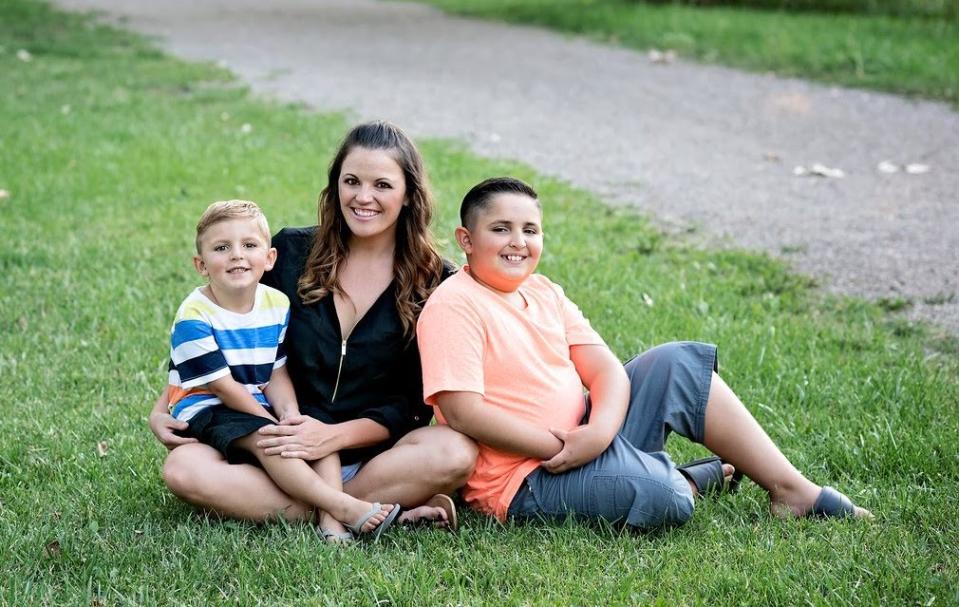
Planned Parenthood Utah served Dotson and over 39,000 Title X patients in 2018 alone. But while Dotson has a good job and a home, over 50 percent of Planned Parenthood’s Title X patients are below “100 percent of poverty” and qualify for full subsidies, according to Galloway.
“Federal poverty guidelines say that one person not supporting anyone else has to make just under $12,000 dollars a year to be fully subsidized,” Galloway tells Yahoo Lifestyle. “So we're talking about people who are just making under $1,000 a month. They might be students, or they might be working people who don't qualify for any employer-supported insurance program.”
Galloway herself benefited from Title X years ago as a University of Wisconsin student. She says without it, she wouldn’t have finished college. “As a young student, this program was a godsend,” Galloway wrote in an op-ed for The Hill last week. “It meant I could get the affordable birth control I needed so I could finish my education.”
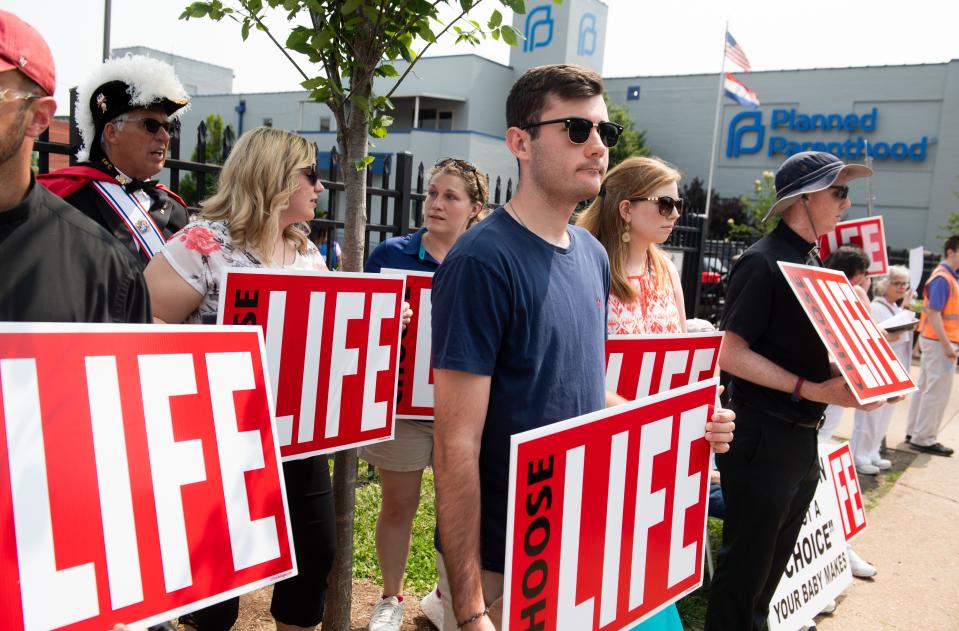
Reactions to Planned Parenthood’s decision to withdraw from Title X have been mixed. Anti-abortionists are hailing it as a “long-awaited victory” for their cause, (despite the fact that Title X doesn’t cover abortions except in extremely narrow circumstances). Meanwhile, others say that it proves the organization’s pro-abortion agenda. “By rejecting $60 million in Title X funds, Planned Parenthood has again shown that their #1 priority is NOT healthcare, it’s killing preborn children,” tweeted anti-abortion activist Lila Rose.
The Trump administration is similarly critical of the decision. In an statement to NPR, the Department of Health and Human Services (HHS) officials said that Planned Parenthood and other organizations who withdrew from the Title X program over the policy change are “blaming the government for their own actions” and are “abandoning their obligations to serve their patients under the program."
By rejecting $60 million in Title X funds, Planned Parenthood has again shown that their #1 priority is NOT healthcare, it’s killing preborn children.
Let’s continue to fight for complete removal of PP's $500 million per year in taxpayer funding. https://t.co/7JzQzfqBIe— Lila Rose (@LilaGraceRose) August 20, 2019
Many Utah women, on the other hand, responded to the news with outrage and disbelief, sharing experiences like Dotson’s of turning to Planned Parenthood when they were left with no other affordable reproductive health care provider.
Twenty-eight-year-old Utah resident Esmeralda Cabrera says she relied on Title X as a “broke” college student. “I used Planned Parenthood for birth control, a pelvic exam and STD testing. I had no insurance, and worked as a waitress making absolutely no money, so going to my regular doctor wasn't an option,” she tells Yahoo Lifestyle. “So I went to the one place I could go to get services I really needed without paying an arm and a leg for being self pay.”
Women in Utah no longer have access to ANY Title X clinics, which is going to make it extremely difficult to access affordable contraception, STI screenings and treatment, CANCER SCREENINGS, and abortion. Republicans don’t give a fuck about women or our healthcare. https://t.co/iPcyH6JeGv
— baby cat meow meow (@irritayted) August 20, 2019
Another woman says that Planned Parenthood helped her take care of her ovarian cysts when she was uninsured. “I love Planned Parenthood of Utah,” wrote Laurie Heath. “They took care of me when I was uninsured and had ovarian cysts that made it almost impossible to function. They are an amazing part of our community.”
Contrary to what HHS says, many in the medical community maintain that any policy that forces doctors to withhold vital information from their patients is “unethical.”
“It is part of our job and our charge to provide patients with factual and compassionate expertise care to our patients” Traxler tells Yahoo Lifestyle. “The gag rule is really an offense to that and I'm proud of Planned Parenthood for standing with providers to say, ‘We're not going to allow providers to be bullied into keeping information from our patients for grant money.’”
Although their care will be more expensive and less accessible, many of its current and former patients also stand by Planned Parenthood’s decision to reject the restrictive policy.
“We've been seeing this trend of government putting itself in places it really doesn't belong and a woman’s uterus is one of them. We needed someone to fight back,” says Cabrera, adding that women should have all the facts and options when it comes to their own pregnancy.
But, the reality is that while there are other clinics nationally that receive Title X funding, they are not equipped to serve over 4 million Title X patients.
“There are community clinics, or state department health clinics,” Traxler tells Yahoo Lifestyle. “However, most of those places have stated that they do not have the capacity to take on all of the patients that used to get Title X through Planned Parenthood.”
For states like Utah and Minnesota where Planned Parenthood was the sole or primary Title X grantee, underprivileged patients may have nowhere else to turn. “Someone's job or how much they make every year does not make them worthy or not of medical attention. We all need to be able to get the care that we need... This is the United States of America. We were supposed to take care of our people,” says Dotson. “Honestly, I don’t know where I’ll go.”
Read more from Yahoo Lifestyle:
• The internet goes crazy after Leana Wen ousted from Planned Parenthood: ‘This is a monumental loss’
• Woman charged with manslaughter after she is shot in the stomach while pregnant
Follow us on Instagram, Facebook, and Twitter for nonstop inspiration delivered fresh to your feed, every day.

